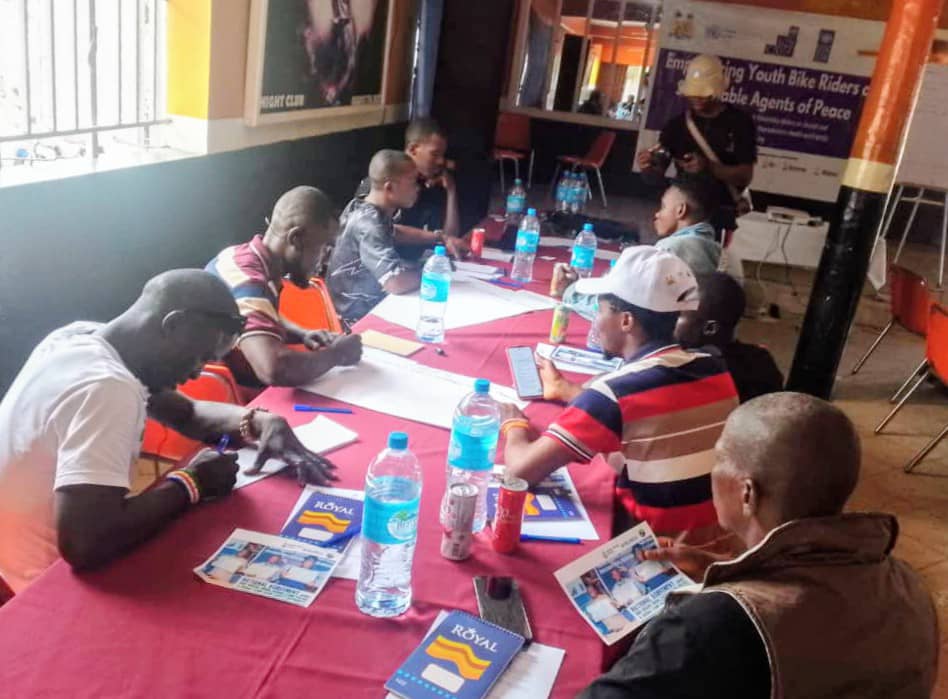By: Alusine Rehme Wilson

In a bid to turn young motorbike riders into agents of peace and community development, the Prevention First Initiative in collaboration with it's partners including the Peacebuilding Fund and UNDP, organized a day's empowerment training at the Garden States Hall in Makeni.
Themed as “Empowering Youth Bike Riders as Sustainable Agents of Change,” the event brought together dozens of commercial motorbike riders, widely seen as one of the most active but often misunderstood youth groups in Sierra Leone’s urban landscape.
The training addressed crucial issues such as reproductive health, family planning, peacebuilding, and the prevention of sexual and gender-based violence (SGBV).
In his opening remarks, Mr. Foday Mohamed Sesay, from the Ministry of Gender and Children’s Affairs commended the initiative, noting that bike riders interact with thousands of people daily and are well-positioned to influence public behavior.
"Your role in society extends beyond transportation. You are leaders with the power to shape attitudes and protect communities," Mr. Sesay told participants.
He led discussions on the importance of safe sexual practices and reproductive health, encouraging riders to take responsibility for their well-being and that of others.
Ms. Corbola Abigail King, School Coordinator for Prevention First, encouraged participants to use their daily mobility and public presence to spread messages of peace and non-violence.
“Bike riders are everywhere, in our towns, markets, and villages. They can be powerful messengers of peace if they choose to act responsibly,” she said.
The training also explored the concept of SGBV, explaining its forms, consequences, and how communities can respond. Riders were urged to reject violence and see themselves as protectors rather than perpetrators.
Key takeaways from the session included: respect for all individuals, regardless of gender, speaking out against abuse, supporting survivors confidentially, using existing referral systems such as the Family Support Unit (FSU), Rainbo Initiative, and the 116 toll-free line.
Participants were also informed of the critical 72-hour window for medical and legal response in SGBV cases.
Mr. Abdul Salam Jalloh, Field Advocacy Officer at Prevention First, said the goal was to empower riders to be change-makers.
"Bike riders are not just a vulnerable group, they are stakeholders in national peacebuilding efforts. After this training, we expect them to become educators and mediators in their communities," he noted.
Several participants expressed gratitude for the training, describing it as transformative.
“This session has changed how we see ourselves. We’re not just riders anymore, we’re leaders who can help build peace and protect our people,” said Kamara Isaac James, one of the attendees.
The training marks a significant step in reshaping public perception of motorbike riders, from being seen as social nuisances to becoming advocates for peace, gender equality, and healthy communities.
The initiative is part of a broader effort to harness the potential of Sierra Leone’s youth in promoting sustainable development and social cohesion.
Bth
ReplyDelete